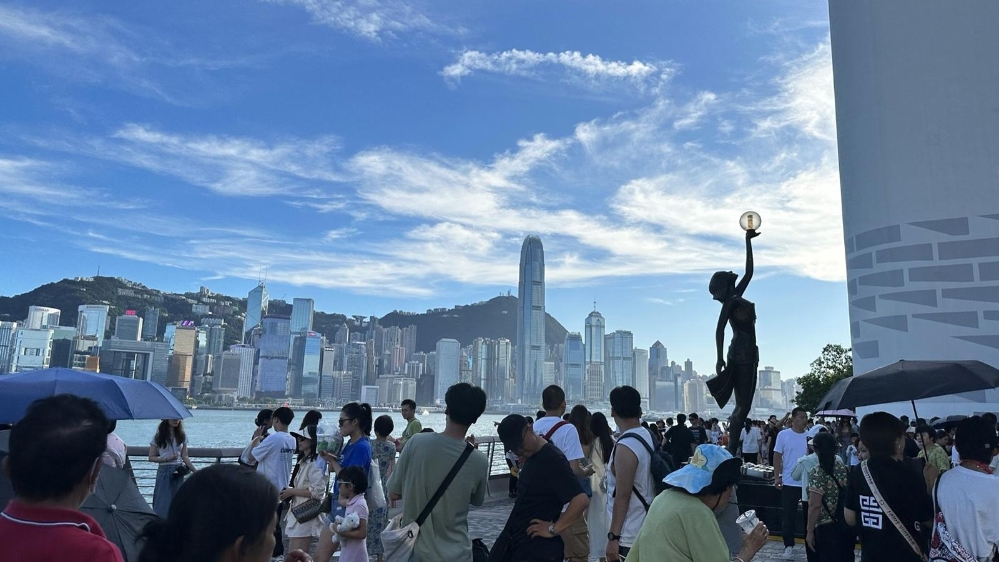By Tu Haiming
On May 11, the National Immigration Administration added eight more cities to the Individual Visit Scheme. These far-away cities, with some 33 million residents in total, are expected to bring many overnight visitors to Hong Kong. The new initiative comes as a great boon to the revitalization of Hong Kong’s tourism industry and overall economic development. But whether Hong Kong can tap into this favorable policy will hinge on the tourism industry’s ability to adapt to shifting market conditions.
The purposes of mainland residents’ visits to Hong Kong have significantly changed nowadays. More and more visitors are shifting from group tours to individual tours that emphasize in-depth travel and experiential travel or immersion travel, as young visitors increase while older visitors decrease.
Mainland visitors’ spending patterns have also changed, shifting from shopping sprees to moderate consumption. Overnight stays are increasingly replaced by day trips. Hong Kong must adapt to these changes by creating a befitting environment for in-depth travel and experiential travel. Aside from being a well-known international metropolis where East meets West, the city also boasts a spectacular natural landscape. Hong Kong should leverage these advantages to strengthen and promote the city’s charm in the following three aspects:
First, contrasting Chinese and Western cultural elements could be juxtaposed in the same area to highlight the city’s attraction as a melting pot of traditional Chinese cultures and Western ones.
Second, new itineraries that combine unique downtown spots and beautiful natural landscape should be created to highlight the charm of a mixture of modern technology and natural beauty.
Third, immersion travel that allows tourists to feel the pulse of the city, its cultural uniqueness and daily life of ordinary residents should be a new focus in promoting the city’s charm.
As an open and inclusive international city, if Hong Kong can reinvent itself as a place full of visitor hot spots, there is no need to worry about attracting tourists and the recovery of its inbound tourism
Reinventing a visitor-friendly culture
Aside from the changes in mainland tourists’ preferences, the weaker-than-expected revival in Hong Kong’s inbound tourism after the scrapping of COVID-19-related travel restrictions is also attributed to the 2019 riots, which left many mainland residents with a negative impression of the city after rioters and anti-China subversives demonstrated unvarnished hostility toward mainland visitors. This overhang still hounds many mainland residents, denting their enthusiasm for visiting Hong Kong, and thus affecting the city’s tourism industry.
To rectify the situation, the Hong Kong Special Administrative Region government has encouraged and supported the services sectors to launch various campaigns to promote politeness and smiles among workers in these sectors. The tourism sector has also launched the Quality Tourism Services Scheme and Outstanding QTS Merchant and Service Staff Awards. These efforts are undoubtedly helpful but need time to bear fruit.
Hong Kong’s reputation as a hospitable city can be enhanced in two ways: 1) providing visitors with a great customer experience by improving the quality of services through the establishment of higher service standards for workers in the tourism-related sector and with incentives; 2) boosting the city’s overall hospitality by cultivating a tourist-friendly culture in society, whose members are accommodating to visitors and tolerant of any inconvenience caused by an influx of tourists. Given Hong Kong’s limited urban space, an influx of tourists will inevitably cause inconvenience to the locals. Hong Kong residents should develop greater tolerance of any inconvenience caused by visitors. Restoring Hong Kong’s hospitality will require every Hong Kong resident to treat mainland visitors with courtesy and patience. Hong Kong’s past economic prowess and achievements might have given some residents a false sense of superiority over their mainland compatriots, but such a mentality smacks of parochialism and snobbery that have no place in a modern metropolis.
Providing better services
The relevant departments in the HKSAR government have solicited feedback from mainland visitors, who have exposed many shortcomings that Hong Kong needs to address if the city is to revive its tourism.
For instance, the scarcity of phone-charging facilities on the streets, the unavailability of electronic payment facility in many places, unclear road signs (in many cases with characters too small to be read), and discourteous responses to inquiries or requests for help.
In addition to these shortcomings, HKSAR government officials have acknowledged insufficient physical connectivity between Hong Kong and the eight mainland cities that were newly added to the Individual Visit Scheme. There are either no or inadequate direct flights connecting these cities and Hong Kong, which is a problem that should not be taken lightly. In a recent meeting with Secretary for Culture, Sports and Tourism Kevin Yeung Yun-hung, Xia Baolong, director of the Hong Kong and Macao Work Office of the Communist Party of China Central Committee, said that Hong Kong’s tourism industry should recognize, adapt to, and formulate innovative solutions to cope with the significant changes that have occurred in the city’s internal and external environments. He raised the idea that “anywhere in Hong Kong can be turned into a visitor hot spot”, and called for the tourism industry to fully explore and tap into the city’s rich tourism resources, actively draw on successful experience from elsewhere, innovate new ideas, actively develop new tourism routes and itineraries, and strive to continuously improve service quality, so as to make Hong Kong’s hallmark as one of the best tourism destinations more lustrous. Xia’s remarks were spot on. As an open and inclusive international city, if Hong Kong can reinvent itself as a place full of visitor hot spots, there is no need to worry about attracting tourists and the recovery of its inbound tourism.
The author is vice-chairman of the Committee on Liaison with Hong Kong, Macao, Taiwan and Overseas Chinese of the National Committee of the Chinese People’s Political Consultative Conference, and chairman of the Hong Kong New Era Development Thinktank.
The views do not necessarily reflect those of Bauhinia Daily.
Source: China Daily
https://res.youuu.com/zjres/2024/5/22/2fQGK3lHUC5FduStAS9mLPXRm7NGCoU73gC.jpeg











掃描二維碼分享到手機














